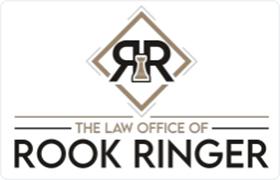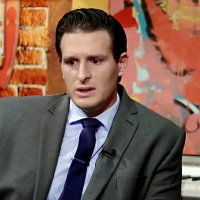 Jacksonville Criminal Lawyers, Florida
Jacksonville Criminal Lawyers, Florida
Sponsored Law Firm
-
 x
x

Click For More Info:
-
The Law Offices of Rook Ringer
1 Main St. Saint Augustine, FL 32084» view mapCriminal Defense Get On The Path To Results Today
Let us help you figure out your best next steps are. The sooner you have a plan of action, the better your chances of taking the correct steps to get the results you want.
800-819-8041
Sponsored Lawyers
1-10 of 72 matches
Felony, DUI-DWI, Misdemeanor, Traffic
If you or a loved one has been arrested, or is being investigated for a criminal charge, having a lawyer represent you AS SOON AS POSSIBLE is one of the most important things you can do to help. I am Bryan Neal and I am your Jacksonville Criminal lawyer. If you have been arrested, I can represent them at "First Appearance" court, and ask for an AFFORDABLE BOND or an ROR (NO MONEY RELEASE) so that the person arrested can go about their regular life such as school, work and family while I work out the charges. will speak with the PROSECUTOR and ask that the case be placed in a "PTI"( Pre-Trial Intervention) program, which if successfully completed will result in NO CHARGES BEING FILED. I can also ask that a felony case be "dropped down" to a misdemeanor, where there would be NO RISK OF A FELONY CONVICTION. As your criminal lawyer I may ask that you receive treatment for problems with drugs or alcohol INSTEAD OF SERVING A JAIL OR PRISON SENTENCE. There are LOTS OF OPTIONS for people who are arrested besides a JAIL OR PRISON SENTENCE. As your criminal lawyer I will help you get the BEST POSSIBLE OUTCOME. If a person is UNDER INVESTIGATION or has a WARRANT for their arrest, I will speak with the POLICE and the STATE ATTORNEY, so you don't have to ! IT IS IMPORTANT when you hire a CRIMINAL LAWYER that they are familiar with the people making decisions and have COURTROOM EXPERIENCE.
(more)Criminal, DUI-DWI, Motor Vehicle, Accident & Injury, Consumer Protection
Michael is a dedicated Jacksonville Criminal Defense Attorney and Florida DUI Attorney who approaches every case with the utmost skill and effort. Michael is exceptionally skilled in the areas of criminal and traffic matters. Since founding Rainka Law, Michael has focused his practice solely on criminal defense and consumer protection, most specifically DUI defense and violations of consumer protection laws.
(more)Other, Industry Specialties, Federal Trial Practice, Criminal, Personal Injury
White Collar Crime, Education, Immigration, Employment, International
Kendra L. Bunn is a Jacksonville, Florida-based immigration attorney and the founder of the Law Offices of Kendra L. Bunn, P.A., established in 2002. With over two decades of experience, she specializes in immigration law, including visa applications, investor applications, business work visas and family-based petitions. Her firm serves clients throughout Florida and has expanded to the Midwest, with offices in Marietta, Ohio, and Athens, Ohio. Ms. Bunn is recognized for her leadership in the legal community. She was one of the first female attorneys to practice immigration law in North Florida and has held significant roles such as the National Liaison to the USCIS Jacksonville Office, AILA Director of National Citizenship Day in Jacksonville, and National Mentor in the areas of F-1 students, researchers, and international faculty in higher education. Her Florida offices are located at 4720 Salisbury Rd, Jacksonville, FL 32256, and she offers services in multiple languages, including English, Serbo-Croatian, Macedonian, Russian, and Italian. Her Midwest offices are conveniently located between Columbus, Ohio and Pittsburgh, Pennsylvania, serving all of Ohio and Western Pennsylvania. In addition to her legal work, Ms. Bunn is involved in community service. She and her family are active members of the Christian Family Chapel in Mandarin, Jacksonville, Florida. She also volunteers frequently with many sports groups in town, while chasing around her two very busy and active children!
(more)Divorce & Family Law, Criminal
Joseph Gasparro has experience with family, criminal, business, and estate law. He owns his own law practice in Jacksonville, Florida. He graduated with his Juris Doctor and honors from Florida Coastal Law School in 2015. He offers an initial free consultation, and promises a response by the end of the day.
(more)Criminal, DUI-DWI, Felony, Misdemeanor
Kevin Alan Raudt proudly serves Ponte Vedra Beach, FL and the neighboring communities in the areas of Criminal Defense, Divorce & Family Law and DUI-DWI law. Please click to view my Website.
(more)Criminal, Accident & Injury
Stephen Bernhardt has been an attorney since he was 25 years old. Now, nearly a decade later, Bernhardt has extensive trial experience in both criminal and civil law. He began his legal career as a prosecutor, first handling misdemeanor offenses such as DUI, Battery, Possession of Controlled Substance, Violation of Injunction and many others. Bernhardt was quickly moved to a felony division and become the State Attorney’s Office’s representative for the county’s Drug Court Program. In this role, Bernhardt learned many techniques to help individuals overcome addictions as well as the differences between the many rehabilitation establishments throughout Florida. Prior to leaving the State Attorney’s Office, Bernhardt was the lead prosecutor in his division. Bernhardt conducted several jury trials that ended in convictions and sentences of more than thirty years, including a mandatory life in prison sentence. After leaving the State Attorney’s Office, Bernhardt began practicing civil law for one of the largest creditors’ rights firms in the United States. Bernhardt quickly became the lead litigating attorney for the firm’s Florida office and handled countless civil hearings and trials before leaving to start Bernhardt Law, PLLC. Bernhardt Law focuses on the practice areas of Criminal Defense, Personal Injury and Debt Defense. Using the knowledge gained throughout the years, Bernhardt Law is dedicated to making sure each client’s specific situation is handled with the utmost professionalism, attention to detail, and integrity. How did you build a successful practice? I was fortunate enough to begin my legal career having great mentors and practicing in front of great judges. Having that foundation and always continuing to work hard has helped me build a successful practice. What should clients look for in a lawyer? Clients should look for a lawyer that has a strong work ethic and that conducts himself/herself with integrity. How important is local knowledge to the success of your cases? Having knowledge of the local judges and attorneys for the other side in very important in all areas of law. What information can you provide in a free phone consultation? I’m happy to discuss an individual’s legal matter for free over the phone or at one of our locations. I would review their case, discuss the strengths and weaknesses and determine what options may be available for the client What information do you need in a free phone consultation? I would like to review any paperwork they’ve received from the other attorney/party as well as contact information for following up. What differentiates you from other lawyers in your community? The two things that separate me from other lawyers are (1) my trial experience and (2) my experience on the opposing side. I have handled more trials in my first decade as an attorney than most attorneys will handle in their entire career. Additionally, as it pertains to criminal defense and debt defense, I have been the head attorney in my respective divisions for the sides I now go against. This gives me a big advantage in those cases. What is the most rewarding aspect of your job? When someone comes to me, it usually means they’re going through a tough time. Either they’ve been hurt, arrested or sued. Helping someone get through that difficult time by putting these legal issues behind them is very rewarding. What are your other interests in addition to law? I am a big sports fan and I also love to travel.
(more)



 Rook Ringer Saint Augustine, FL
Rook Ringer Saint Augustine, FL Practice AreasExpertise
Practice AreasExpertise







